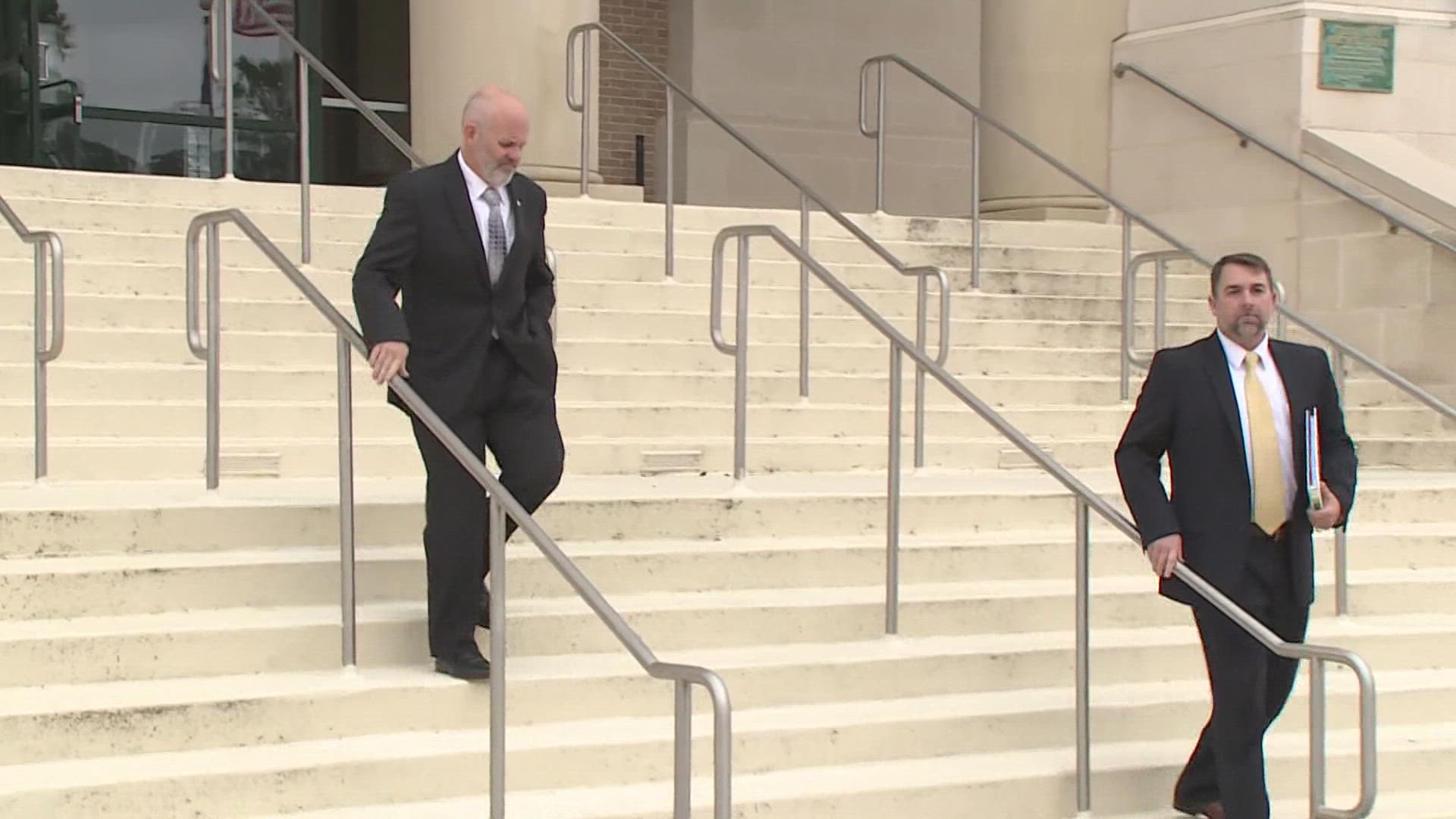ST. TAMMANY PARISH, La. — A federal agent's emails criticizing the St Tammany Parish Sheriff’s Office investigation of the high-profile murder of Nanette Krentel landed him in jail in 2019, facing a charge of criminal defamation.
Newly released federal court documents indicate that fallout from the arrest led an FBI agent to call for a full investigation into a possible criminal conspiracy by Sheriff Randy Smith and some of his top staffers.
Jerry Rogers, an investigator for the U.S. Department of Housing and Urban Development, is suing Smith and two of Smith's deputies over his arrest for criminal defamation -- a statute that had been ruled unconstitutional by the state Supreme Court decades earlier.
This week, Rogers' attorney, William Most, filed a motion asking U.S. District Judge Jane Triche Milazzo to rule in favor of his claims of false arrest and false imprisonment because of the rulings that declared the law unconstitutional.
Smith, who was facing challengers in a reelection bid at the time of the arrest, was reacting to emails that Rogers had sent to the sister of Krentel, who died from a gunshot wound to the head in 2017. Her body was found in the burned wreckage of the Lacombe home she shared with her husband, who was a fire chief at the time. The homicide remains unsolved.
Among other things, Rogers said that the lead detective in the still-unsolved case was "clueless" and a "stone-cold rookie," statements Smith claimed were false and defamatory and harmful to the confidence of the victim's family.
Several weeks after Rogers' arrest, a request for a full investigation into the actions by the Sheriff's Office was made by an FBI agent who had interviewed the judge who signed the arrest warrant, members of the district attorney's staff and others, according to the motion.
A redacted FBI document, dated Oct. 8, 2019, seeks a probe into allegations that "reasonably indicate a civil rights violations occurred," and concludes by saying a full investigation should be opened "for evidence of a criminal conspiracy" on the part of members of the Sheriff's Office.
The investigation never happened, however. In an email response to questions, the Sheriff's Office provided a Feb. 11, 2020 letter from the FBI that said "DOJ supervisors determined the captioned matter did not warrant further investigation."
The Sheriff's Office also said in an email that Rogers asked the FBI to look into the matter, although the initial FBI document said that it received "information," including articles in the media.
In response to a request for comment, the Sheriff's Office called the motion for summary judgment a routine pleading that it would oppose "at the appropriate time."
"The sheriff looks forward to his day in court where Mr. Rogers will finally be compelled to answer some very difficult questions under cross-examination about his activities in this homicide case," the statement said.
The statement quoted Smith as saying that the investigation and arrest of Rogers was appropriate and that the emails were obviously sent to undermine the ability of investigators to communicate effectively with the family and solve the crime.
"These facts were presented to a judge who agreed that there was probable cause to suggest a crime had occurred and thus he signed the warrant for the arrest of Mr. Rogers," the Sheriff's Office said in the prepared statement.
But Rogers' court filing cites statements in a deposition from sheriff's Capt. Keith Canizaro, one the defendants, acknowledging that the Sheriff's Office didn't tell the judge that the District Attorney's Office had warned that the arrest might be unconstitutional.
"The judge who signed the warrant, however, very much thought that he should have been made aware of the DA's warning," the motion said, citing an FBI interview in which the judge said he has "assumed law enforcement officers request arrest warrants and search warrants in good faith and would bring attention to all known facts, to include if the law enforcement officer suspected a law was possibly unconstitutional."
Most said that in their depositions, the three defendants said they would have done nothing differently, even after the DA, the state Attorney General and a judge said that the arrest was unconstitutional.
"That should worry every citizen in St. Tammany Parish," he said.

